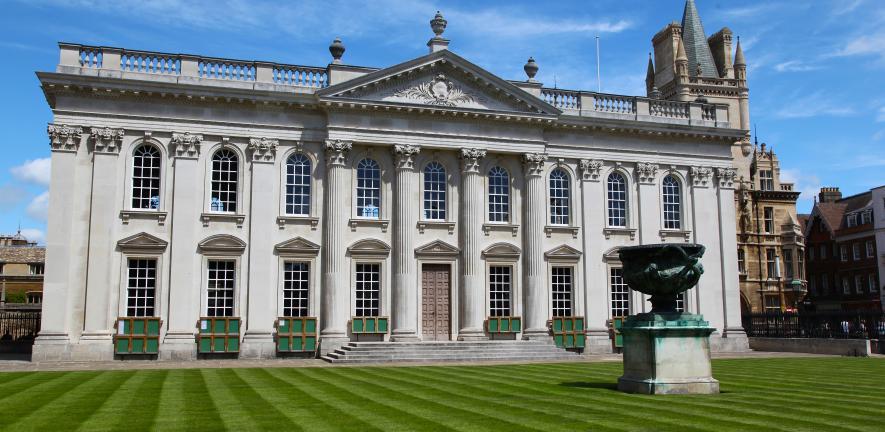Former University of Cambridge Vice-Chancellor Professor Sir Leszek Borysiewicz, an Honorary Fellow of Wolfson College and Homerton College, is made Knight Grand Cross (GBE) for services to cancer research, clinical research, medicine and to charities.
Professor Ijeoma Uchegbu, who has been President of Wolfson College since October 2024, becomes a Dame (DBE) for services to chemical sciences and inclusion and diversity. Prof Uchegbu is a renowned expert in the field of pharmaceutical science and was most recently Professor of Pharmaceutical Nanoscience at University College London. Her research has focussed on methods that can be used to help drugs reach their target more effectively and reduce the likelihood of uncomfortable side effects. While at UCL she spearheaded a project to improve outcomes for both staff and students from under-represented ethnic groups. She is is a Fellow of the Academy of Medical Sciences and an Honorary Fellow of the Royal Society of Chemistry.
She said: “I’m absolutely thrilled. I wouldn’t say I’m humbled – I know people say that, but when I saw the letter at the Porters’ Lodge what I felt was an overwhelming sense of gratitude and pride. In my wildest dreams I never believed I would get such an award.”
Professor Ashley Moffet, Professor of Reproductive Immunology, is made Companion of the Most Distinguished Order of Saint Michael and Saint George (CMG) for services to reproductive health. A Fellow of King's College, she is the foremost international authority on the immunology of human reproduction and her work on genetic research has helped explain high rates of pre-eclampsia and maternal mortality in Ugandan populations. She is a Fellow of both the Academy of Medical Sciences and the Royal College of Obstetricians and Gynaecologists.
She said: "I am delighted by this honour that is a tribute to the hard work and dedication of my many colleagues both here in Cambridge and in Uganda who are working together so tirelessly to support women in the field of maternal health."
Professor Gilly Carr is Professor of Conflict Archaeology and Holocaust Heritage and receives an OBE for services to Holocaust research and education. Professor Carr, a Fellow of St Catharine's College, is a member of both the UK delegation of the International Holocaust Remembrance Alliance (IHRA) and the academic advisory board for the UK Holocaust Memorial Centre. Professor Carr has a particular research interest in wartime incarceration, internment and imprisonment. 2024 saw the publication of her latest book 'A Materiality of Internment' which drew on over 15 years of research and interviews with more than 65 former internees.
She said: “I am absolutely thrilled for my research and teaching to be recognised in this way. I've been working hard on behalf of victims of Nazism and the Holocaust for 15 years and for this to be seen as nationally important and worthwhile encourages me to continue my work with vigour.”
Professor Rachel Oliver, who also receives an OBE, is a materials engineer, inventor and commercial spinout founder. A Fellow of Robinson College, she is currently Director of the Cambridge Centre for Gallium Nitride and Chief Scientific Officer of Poro Technologies Ltd. (Porotech). Her research is in understanding and engineering the small-scale structure of semiconductor materials to enable new technologies to develop. Prof Oliver is a Fellow of the Royal Society of Engineering and is a passionate advocate for equality, diversity and inclusion in science and engineering.
She said: “I am delighted to receive this honour and it is vital that I acknowledge the fabulous teams that I work with both in the University of Cambridge and at Porotech, a company that spun out from my research group. I hope I can encourage more people to get involved in semiconductors in the UK. The semiconductor ecosystem has been an exciting place to work throughout my career, but never more so than right now, with both research and industry rapidly growing and stepping up to address some of the most pressing challenges we face.”
Image: courtesy of University of Cambridge
Reproduced courtesy of the University of Cambridge



